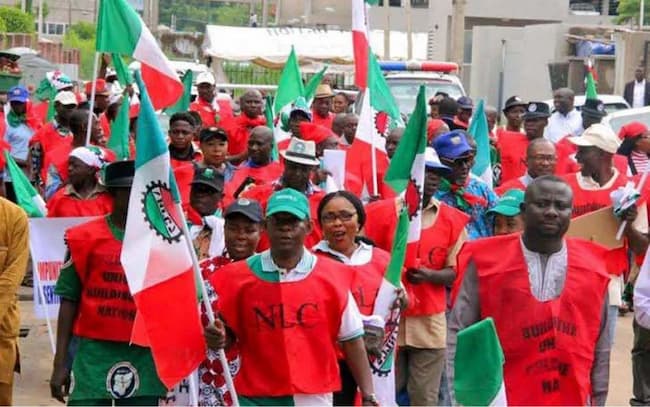The Nigeria Labour Congress (NLC) has warned that it will take strong action if the Federal Government implements a new charge on telecommunications services, going against an earlier agreement with labor representatives.
This decision was announced during a meeting of the NLC’s National Executive Council (NEC) in Yola, Adamawa State. The meeting also focused on economic challenges affecting Nigerian workers, and it included the launch of Compressed Natural Gas (CNG) Mass Transit Buses for the North-East region.
Why is the NLC Protesting?
The NLC is particularly concerned about two major issues:
- A planned 35% increase in telecom service tariffs.
- The reclassification of electricity consumers, which could lead to higher bills.
The telecom tariff hike was originally proposed as a 50% increase but was reduced to 35% after discussions between the NLC and the government. However, the labor union fears that the government may not honor this agreement when the new rates take effect on March 1, 2025.
The NLC has warned that if the government fails to implement the agreed changes, it will take immediate action, including nationwide protests and strikes.
Concerns Over Electricity Tariffs
The labor union is also strongly opposing the Nigerian Electricity Regulatory Commission’s (NERC) recent decision to reclassify electricity consumers. This move, the NLC argues, is an attempt to force low-income consumers into higher-paying bands, leading to unjustified increases in electricity bills. The NLC calls this move “economic violence against the working class.”
The statement also criticizes government policies that have led to rising inflation, stagnant wages, and a higher cost of living. It warns that any attempt to raise electricity tariffs further will result in mass protests.
Next Steps
The NLC has urged all affiliated unions and workers to be on high alert for a nationwide protest. It is also considering strategies to reclaim the Labour Party, which it says has been hijacked by “reactionary forces” that do not represent Nigerian workers.












